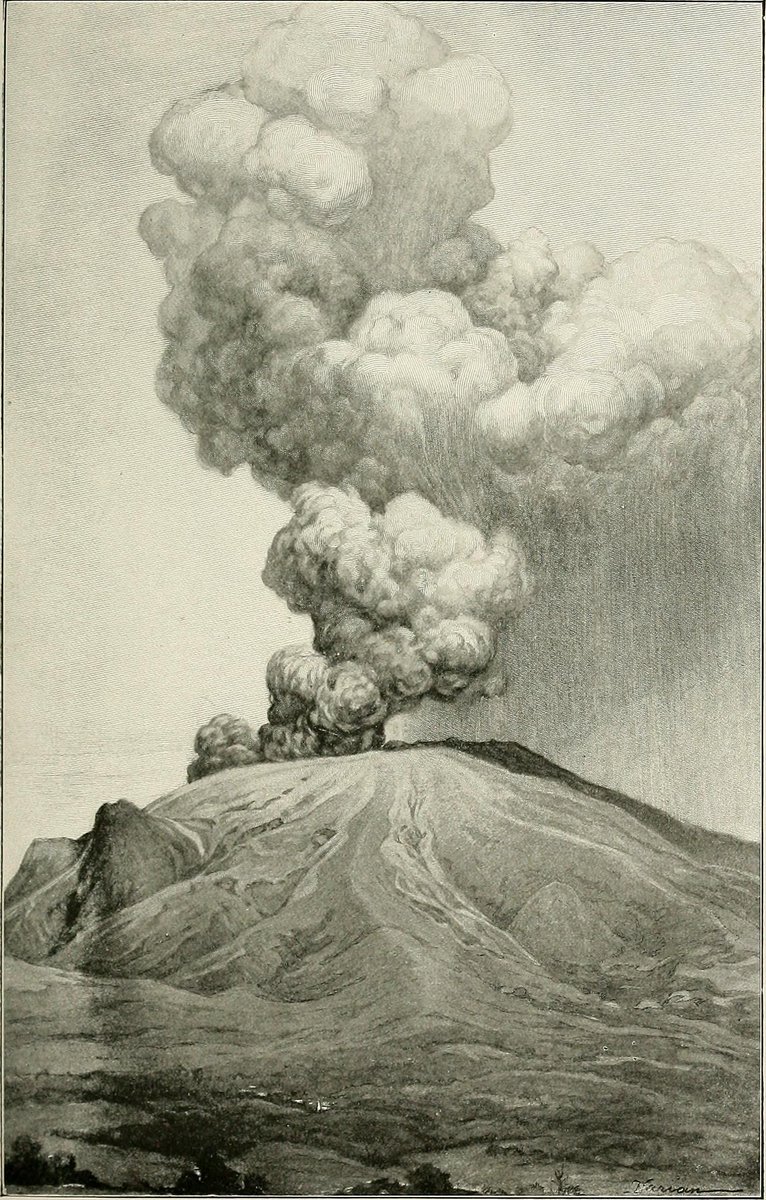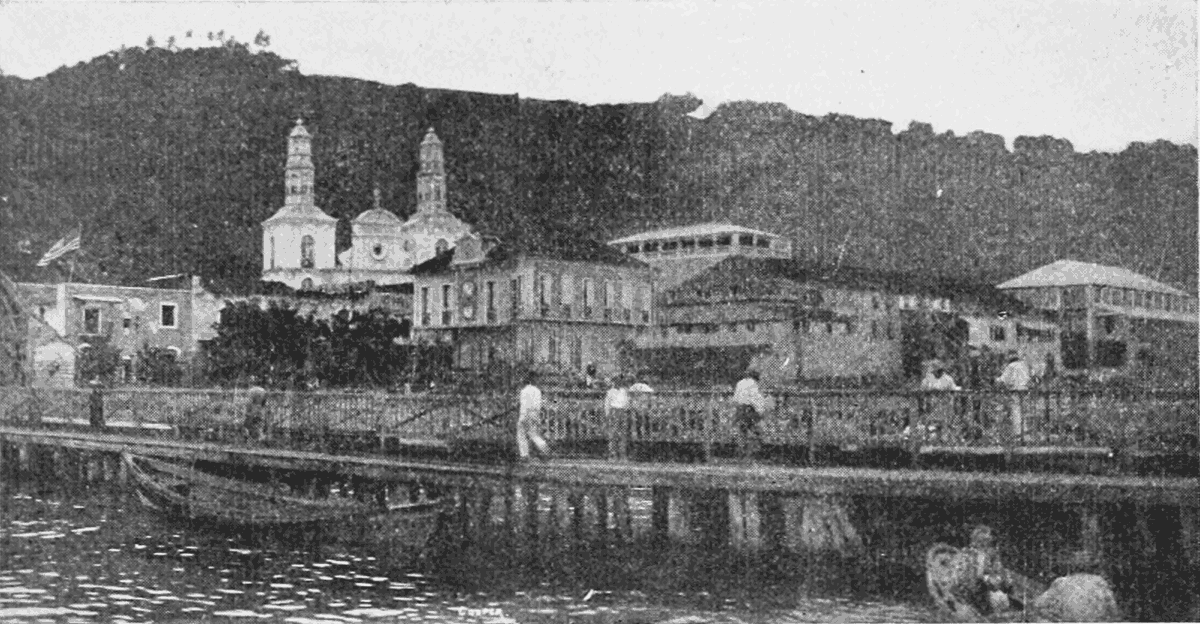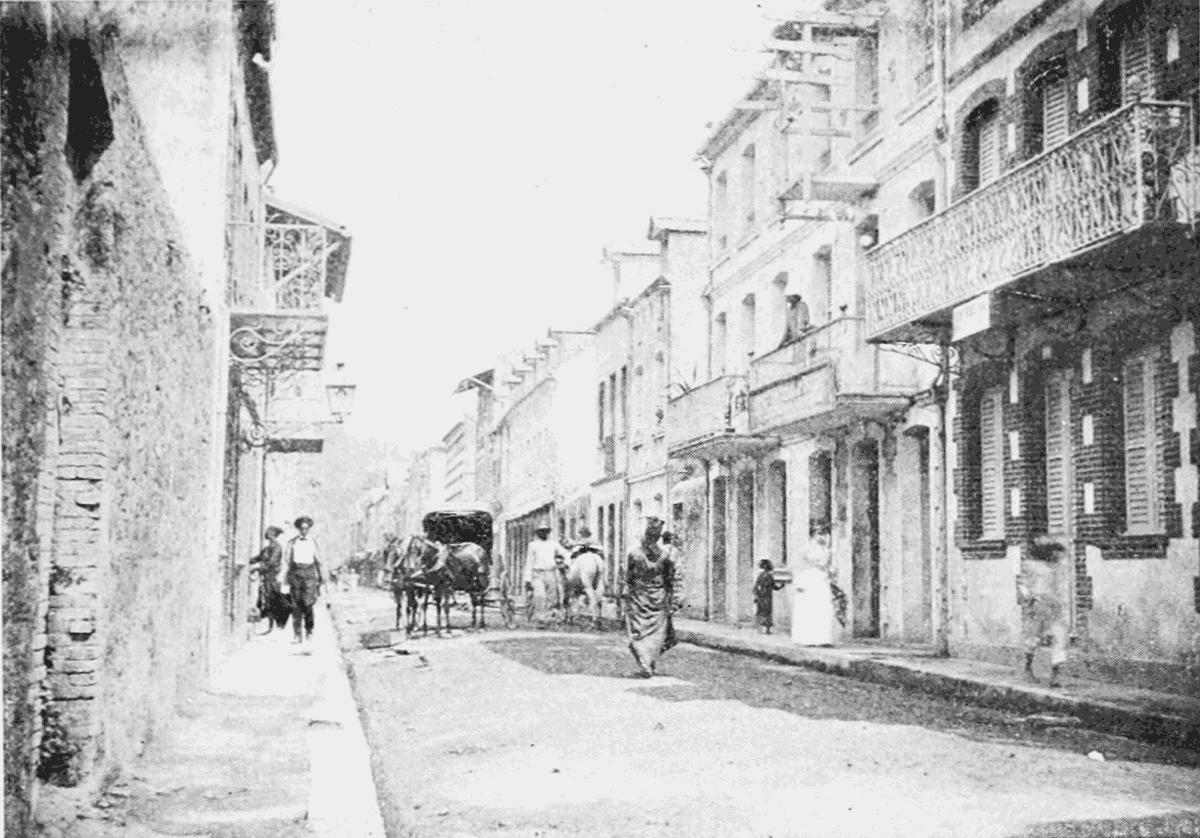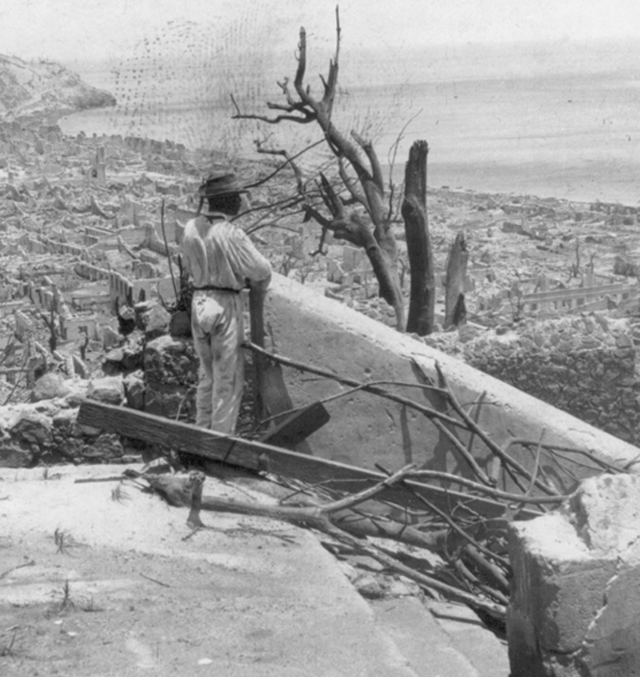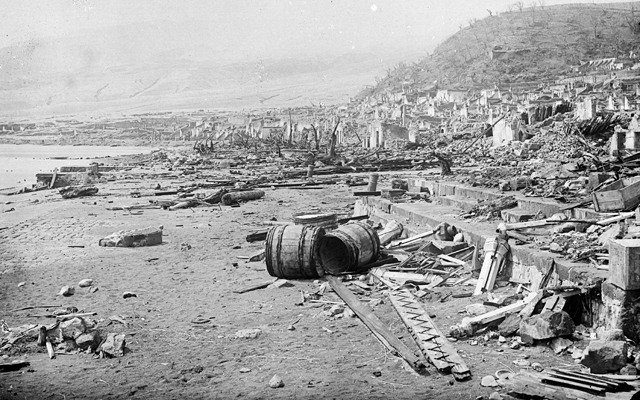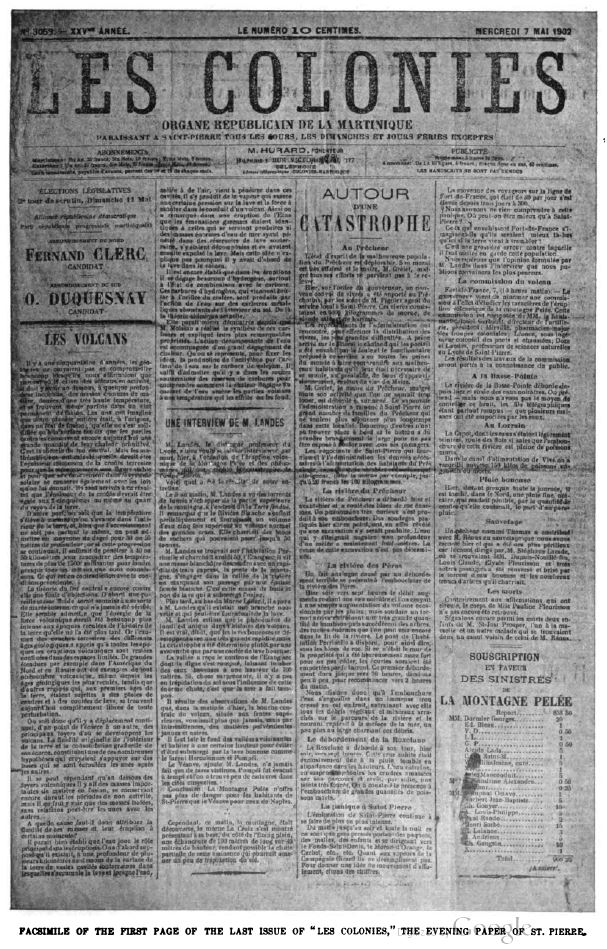Tonight's thread is not part of my ongoing European Bios sequence, it's a little detour to re-read a book called The Day The World Ended, which is about a volcanic eruption on a Caribbean island in 1902 and also very, very much about the United States right now.
The Day The World Ended is excellent, the first book of history I ever read. It happened to be lying around the house when I was 10 years old, and I picked it up and was enthralled. I wonder if I'd picked up a less well-written book I'd feel differently about history.
The bare facts are: on May 2nd, 1902, Mount Pelée on Martinique began to emit smoke. The eruption got steadily worse for six days and on May 8th the volcano erupted, destroying the town of St. Pierre and killing more than 29,000 people, the deadliest eruption in modern history.
The town at St. Pierre, the second-largest town and 15% of the population of the island, vanished in a few minutes. A superheated cloud of gas and lava rolled over the town and vaporized everything more than 2 feet high. There were only 2 survivors; everyone else burned alive.
But these facts immediately raise questions. Why, if they had six days of warning, was the town not evacuated? The volcano gave days of warnings; hundreds of people were killed in smaller eruptions prior to the main one. The answers are instructive to our current situation.
First you need some context: Martinique is a small Caribbean island; slavery had ended just over 50 years earlier. The island was still dominated by 10 very rich white families, with a small middle class of various races, and then much larger number of very poor Black people.
(This is GRIEVOUSLY SIMPLIFYING the complicated social structure of a Caribbean island, which for obvious reasons I could talk about all day, and ignores issues of how mixed-race people fit into the structure, colorism, and more, but this is enough to get you through this thread)
The political structure matched this economic structure: the "Progressive" party (actually conservative) was run by and for the white population and had ruled the island for centuries. But a new "Radical" party representing the Black population had won an election 3 years before.
The Radicals putting an actual Black person in power representing the island in Paris had the white population extremely upset and they were determined that it should not happen again. The election was on the 4th of May, with a run-off election a week later.
The editor of the island's main newspaper, Les Colonies, was a white man entirely on board with the Progressive Party's white supremacist agenda, as was the governor. The trusted newspaper printed only things complimentary to the Progressive Party and suppressed other views.
This was tremendously damaging. The newspaper repeatedly printed false "interviews" with non-existent "experts" claiming that whatever Pelée had done the day before was a sign that the volcano had released the pressure and would now quiet down. It ignored hundreds of deaths.
Politicians with no scientific background latched on to whatever random facts they could find and declared the volcano was safe. Sulphur in the air, it was solemnly declared, is actually good for humans, and dead horses and birds falling dead from the sky nothing to worry about.
The government was also worried that evacuating St. Pierre would result in huge economic disruption. It kept being worried about this even after ash from the volcano had destroyed the sugar crop and a flow of mud and lava had wiped out the major sugar factory nearby.
Fearful of losing voters to the disruption of an evacuation, instead of evacuating St. Pierre the government and the newspaper instructed people to evacuate the surrounding small villages and head *into* St. Pierre. This left the city over-crowded, short on food and water.
A committee of experts was assembled, only one of whom knew anything about volcanoes, and were then instructed to ignore the volcano and prepare a report that explained why St. Pierre was the safest place to be. This they duly did, ignoring all evidence to the contrary.
And there was a LOT of evidence. The town was being smothered in ash falls daily. Its river, fed by the volcanic lake, was in flood. A fast-moving wave of snakes and centipedes, fleeing the volcano, swept through the town and injured hundreds. There were dozens of earthquakes.
Meanwhile the governor, who had until then being sending "nothing to see here" reports to Paris, had requested 5,000 francs worth of aid. This was an absurdly low figure, not enough to cover food for St. Pierre for one day when several villages had already been buried in lava.
It is hard to overstate the degree to which *none of this made any sense*. The focus on short-term concerns in the face of overwhelming disaster boggles the mind. They didn't want to upset the election. The economy was already ruined but they didn't want to ruin the economy.
The town was uninhabitable, plague had broken out, villages had been completely destroyed. Hundreds of people had already been killed but they didn't want to evacuate to avoid spreading "panic". Nobody said "the cure can't be worse than the disease" but they might as well have.
Initially much of the confidence in St. Pierre was because previous eruptions had consisted of lava flows (not explosive eruptions) and they had gone north to the coast instead of south to St. Pierre, and there were several valleys between St. Pierre and the mountain.
But the ability of the valleys to absorb a lava flow was clearly irrelevant once several feet of ash had descended on the town, which was toxic and uninhabitable days before the final eruption. But the government didn't just ignore this, it actively prevented people leaving.
The capital, Fort-de-France, was 14 miles away, at most a day's journey even on foot. In a bid to prevent "spreading panic", the governor ordered the road south to the capital to be blocked. Only a few fast talkers or people who took long detours managed to escape the roadblock.
In the final day, letters from St. Pierre show that people had embraced a weird fatalism that their death was inevitable. But it was all avoidable. They had plenty of warnings, the course of action to avoid all the deaths was clear and easily accomplished. But they didn't.
And the only explanation that matches the facts is a short-term focus by rich people and politicians looking out for their own narrow interests, oblivious to the impact on those things that the large-scale disaster that was about to engulf them anyway would have.
Surely by now the parallels to our own situation are clear, as is the course of action. The pandemic is here. The action needed to keep safe is simple and easily accomplished, but tremendously disruptive. Nevertheless it's the right thing to do to avoid an even greater disaster.
Your media has failed you, your politicans have failed you, the rich will survive either way, just like Martinique in 1902. But you can change your fate. Don't give in to the fatalism of St. Pierre. We can ignore the bad advice and take simple, but hard steps to save all of us.
Stay home whenever you can. Wear a mask whenever you go out. Wash your hands. Don't see your friends. Don't see your family. Give generously to those whose livelihoods are already wiped out. We can save each other. The volcano has given us more than enough warnings.

 Read on Twitter
Read on Twitter